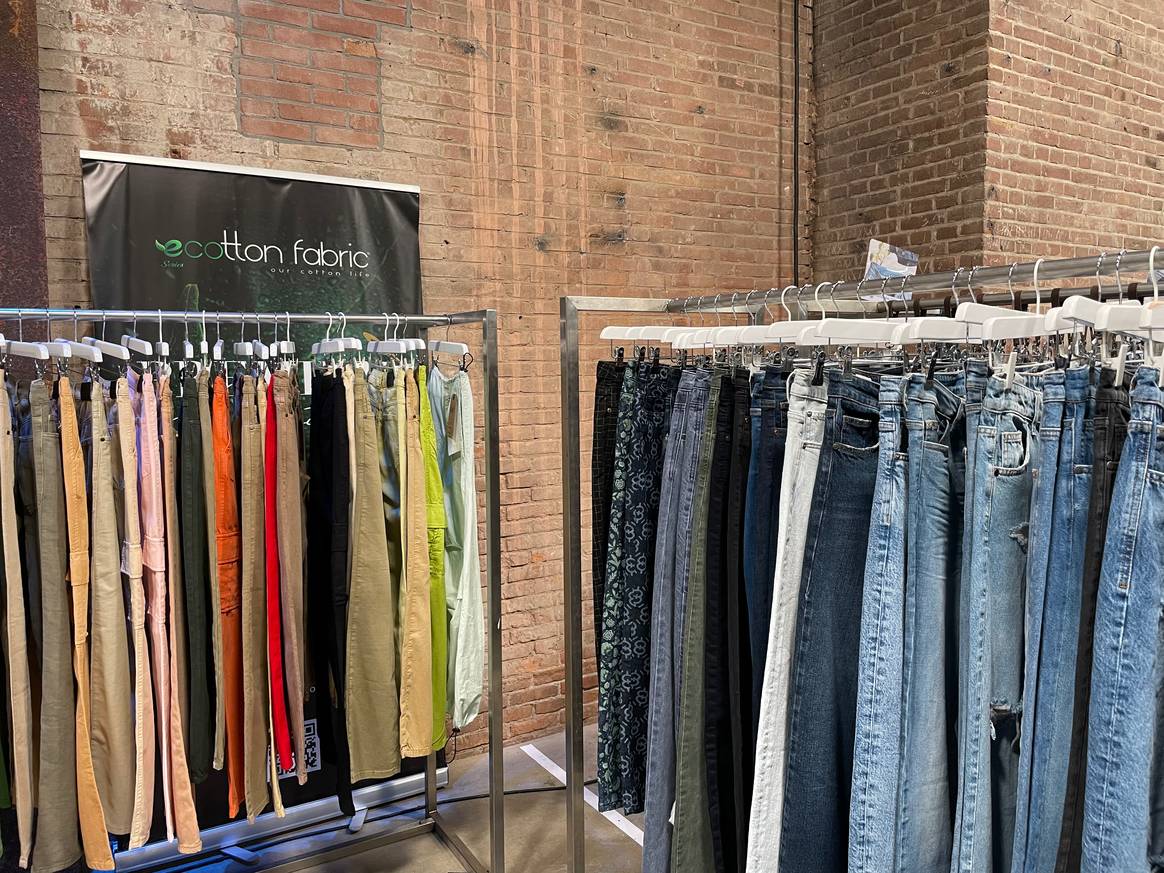Engaged in the clothing industry for 20 years.
Kingpins: How the earthquakes impacted Turkish manufacturers
During the Kingpins denim fair in Amsterdam, FashionUnited met with Turkish manufacturers affected by the earthquakes of February 6 2023.
Turkey is one of the largest textile producers in the world. While the earthquakes that shook the south-east of the country and parts of Syria in February have affected the lives of thousands of people, they have also shaken many local businesses. To understand the impact of the disaster on the country’s textile producers, FashionUnited interviewed three of them at the Kingpins trade fair in Amsterdam, which took place between April 12 and 13.
“Located in the earthquake zone, our factories suddenly stopped working,” says Eren Pakyardim, sales assistant at Cotton Fabric. The Turkish company has been producing fabrics, including denim, satin and jacquard, for about 20 years. The company was badly affected by the earthquakes that hit its manufacturing plants and also its employees, some of whom tragically died.

Iskur Denim, a textile company, emphasises the difficulty of finding employees willing to work. Levent Bozgeyik, its business manager, said: “The biggest problem of the earthquakes are the people. After the earthquakes, it was very difficult to recruit people who were available to work in the company. The machines were not damaged, the factories were not damaged [located in Istanbul, they were not affected by the earthquakes] but very few people can actually work: this is our biggest problem today.”
Bozgeyik continued: “How do you expect them to think about working, when they have no place to live, no place to sleep? They have other things on their minds. We don’t need to fix our machines, we need to bring more people back.”
Fashion brands’ reactions to the earthquakes
While the earthquakes did not have the same impact on each of the companies, they did cause them all delays in their productions. Iskur Denim now needs one whole month to produce its fabrics, compared to the two weeks it required before.
The company works for luxury and high-end brands, including Massimo Dutti. Its customers have been particularly understanding and patient, as Levent Bozgeyik explains: “They believe in us. Over the years, we have built up a strong relationship with them. That’s why the earthquakes haven’t affected our contracts.”
Cotton Fabric has not received the same support from its customers. Eren Pakyardim explains that apart from one particular garment group, “the other companies were not very understanding of our situation and preferred to go to other producers. We have a good relationship with [this group], they helped us by being patient when we couldn’t work as fast as we used to.”
Kilim Denim explains that brands have been more hesitant to collaborate. Founded in 1953, the company began producing denim in 1986 and it quickly became one of its specialities. It works with many brands around the world such as G-Star, Diesel and Replay as well as Bonobo, Zadig & Voltaire and Sézane.
Işil Sena Candan, sales manager at Kilim Denim said: “After the earthquakes, brands and clothing companies tried to get in touch with us. They told us that we should lower our prices, saying that our competitors were cheaper than us. Sometimes the brands try to negotiate our prices.”
Turkish manufacturers affected by the economic crisis
However, Kilim Denim’s factories are close to Bulgaria, and were therefore not directly affected by the earthquakes. The company says that the economic crisis has had a greater impact on its activities than the earthquakes.
However, the rising raw material prices and commercial rents threaten Turkish companies. Işil Sena Candan explains: “We are trying to save money. We use another supplier for transport and chemical materials. Because of rising prices, we are forced to find solutions and rearrange our system so that we don’t have to increase our prices.” Kilim Denim offers premium prices that vary between four and five euros per metre of fabric.
Cotton Fabric has been growing since the earthquakes. However, the company faces competition from foreign producers, mainly from Bangladesh and Pakistan, who offer much lower prices than it does. Eren Pakyardim emphasised the importance of doubling the company’s production capacity and reducing production times in the coming years.
Iskur Denim and Kilim Denim, on the other hand, speak of a stable state. Işil Sena Candan says: “There has been no increase or loss of profits. Every month we try to meet our targets, maintain our relationship with our customers and not lose our contracts. It is a difficult time for everyone, we are not looking to grow but to keep our place.”
Levent Bozgeyik is more radical: “Nowadays, the denim market is more marginal. Nobody is making much money.”
This article was originally published on FashionUnited.FR. Translation and edit by Cenia Zitter.


